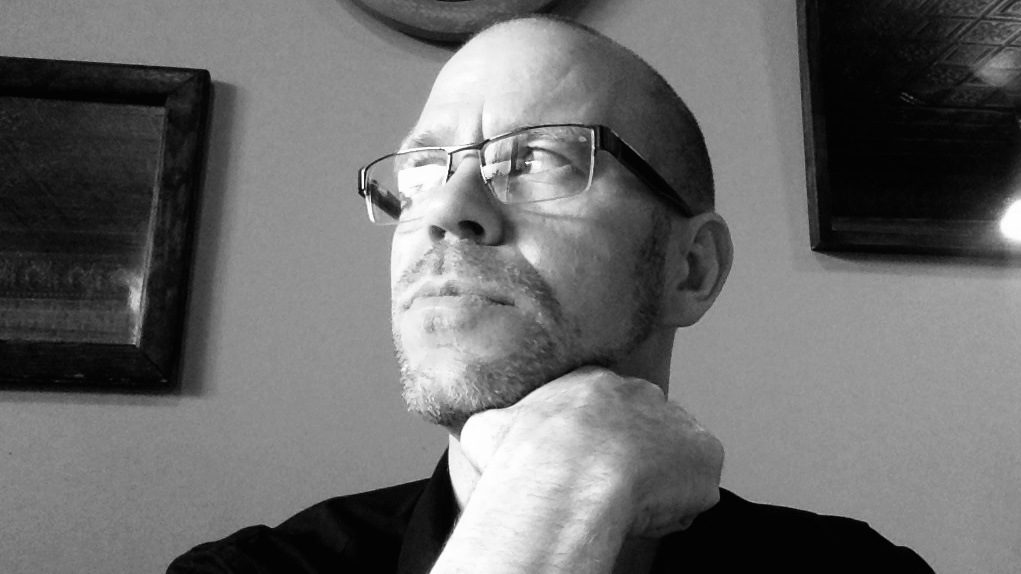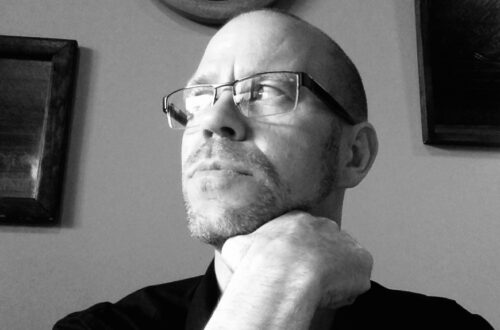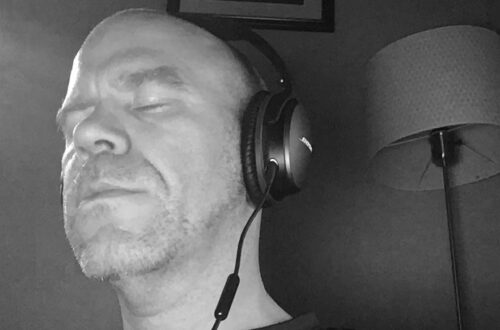I am a lucky guy. I have a wonderful life. I am joyfully married. And I have a spunky pup named Luca. I am an active person. I love to grow heirloom vegetables and flowers in my beautiful garden. And I am passionate about working on issues to achieve social justice.
My predisposition is to be hopeful about the world and its future.
I am also engaged in a struggle to keep chronic Anxiety and Depression at bay.
Regarding Anxiety and Depression, the deck was stacked against me. As a child, I had several knocks to my noggin — a couple pretty severe. I grew up poor, with my brain seeped in the chemicals of toxic stress that often accompany poverty. And (most telling) my DNA included one (possibly two) family lines that gave me a predisposition for a potpourri of mental health difficulties.
I’ve not kept my mental health struggles a secret. I was diagnosed with mood disorders in 2003 — although, as you’ll soon read, I have likely suffered from both since at least my early teen years. Anyhow, after my psychiatrist helped me realize what was going on with me, I decided I shouldn’t hide it. I figured it was best for the people around me to know that there were significant times when my agitation, anger, low lows, isolation, or despondence had nothing to do with them. My brain just doesn’t work optimally sometimes.
…
Here’s a bit more about my struggle with mental illness:
I can say with certainty that I suffered from Obsessive Compulsive Disorder (OCD) as a teen. However, my first psychiatrist noted that it was quite possible I was already suffering from Depression and more variants of Anxiety.
I constantly checked doors to see if they were locked or the dials on the stove to ensure the gas was off, which were significant parts of my daily existence. Going to bed was hellish. I would spend at least 30 minutes each night — sometimes longer — checking the alarm clock to ensure I would be woken up the next day. By the end of the nightly ordeal, I would have a deep imprint on my thumb, marking where the switch on the clock resisted my constant attempts to push it further. The ritual involved me placing my face about a foot from the digital reading making sure that I had set the alarm and that “AM” (not “PM) was indicated as the wake-up time. I chanted “in the morning, after midnight, AH-larm, AH-men, in the morning, after midnight, AH-larm, AH-men” over and over again.
My OCD would definitely ramp up during times of high stress. My family never sought treatment for this ailment because OCD was kind of just seen as an odd family trait, not a health problem.
I think I was around age 21 or 22, checking the stove dials on a cold Friday night when I figured out that, while I always had OCD, things were markedly worse in the winter. And the obsessing was partnered with prolonged down moods.
I had heard about Seasonal Affective Disorder (SAD) from several news reports. It pegged me.
I went to a psychiatrist to ask about SAD. He laughed at me. (Obviously, my attempt at finding a first mind-doc was a bad one.) It would take several more years before I would regain the hope/belief that talk therapy could help my situation.
By my early 30s, negative thoughts ruled nearly all my days, no matter what time of the year. While I can’t recall the date, I remember thinking, “I am a reaction.” I decided to try a psychiatrist again.
My first (good) talk therapy visits were very helpful in getting me to process my life, why I thought of it the way I did, and how to change that. My psychiatrist helped me arrive at the conclusion that I suffered from a chronic condition that would probably require long-term management. He let me arrive at asking for medications a few visits in rather than pushing it on me.
In August 2014, my mental health medications began to stop working. Even though I should have, I didn’t see my doctor or therapist. By March 2015, my Anxiety became unbearable. One day, I fell into an intense panic attack. Rather than having my colleagues witness what was happening to me, I ran away. Thus began a several months-long process. I had to search for a new therapist (I found out my prior one had retired), transition off my old meds (which plunged me into a deep Depression), and transition onto a new cocktail of drugs (which would take months to get me to a stable place).
Ten years later, I am still on that med-mix. It keeps me stable: no prolonged bouts with Depression and an acceptable level of Anxiety (even though It still tussles with me more often than I would like, and I still have rare panic attacks).
I’ve shared before: there are still days (sometimes weeks) when the air is cement, voices are wailing sirens, and I am little more than a reaction. When the air is cemented, I am depressed. I find it hard to do anything. I find it hard to move. My response to stimuli is slowed. When any sound is amplified, I am anxious. It is as if my nerves are guitar strings plucked vigorously to vibrate violently under my skin at any peep or squeak. And I am a reaction. I feel as if I can control nothing.
Thankfully, my current medication cocktail keeps me stable. But if things get bad, I will go in for professional help.
Why do I share this with you? I know mine is just one person’s experience living with Anxiety and Depression. I am only an expert in my own life, and I know that my experiences may be quite different than others who live with these mood disorders. That said, I share my experience for a few reasons:
- Writing about my Anxiety and Depression is therapeutic to me. And writing about my Anxiety while I am experiencing it is turbo therapeutic in helping me get through the panic.
- One of the worst feelings when you are experiencing Anxiety or Depression is that you feel so alone, so isolated. You even convince yourself that no one understands or even wants to know what you are going through. I share my experience because I’ve been told that my sharing has helped others not feel so alone and isolated.
- I want to fight the stigma attached to mental illnesses. Some people still have backward thoughts about people who suffer from mood disorders. Some think of us as weak, but living with a mental illness takes incredible strength. Some think of us as people who can’t contribute to the rest of society. Sometimes, it’s hard to contribute, but it doesn’t mean we don’t try and often succeed despite the odds against us.
- I want people who don’t suffer from Anxiety and Depression to know at least one perspective about what it’s like. Also, I’ve been told that my writing has helped others who have friends, family, or colleagues who suffer from Anxiety or Depression understand what is still an issue closeted in some segments of society.
Michael loves comments regarding his posts. (Comment at the bottom of this page.)





